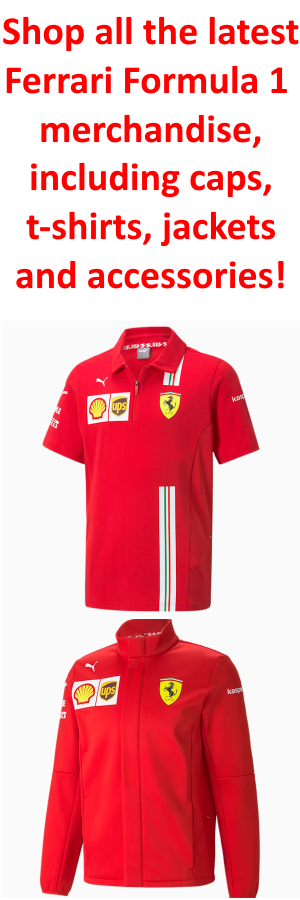The eve of the Abu Dhabi Grand Prix within the Ferrari camp started with the motto of believing and pushing till the tip to keep away from any regrets. The constructors’ title didn’t go to Maranello, however on this decisive weekend, the group left no stone unturned, although the weekend grew to become sophisticated earlier than the observe classes, because of the battery alternative on Charles Leclerc’s SF-24.
After the race, Ferrari group principal Frederic Vasseur defined that past efficiency considerations, the true subject prompting the alternative was the danger of a race retirement, one thing the Italian aspect clearly couldn’t afford given the objective of retaining their championship hopes alive. Undoubtedly, the penalty was a bitter observe to begin the weekend, which was additional sophisticated by Charles Leclerc’s lap time cancellation in Q2, successfully sending him to the again of the grid.
The night time between Saturday and Sunday was stuffed with deliberation, particularly concerning whether or not to switch the Energy Unit. Ultimately, they determined to stay with the unit already mounted on the automotive. This choice made sense, because the degradation of the inner combustion engine over its life cycle has been decreased, notably since groups have centered extra on reliability than pure energy following the freeze.
What stunned most was the choice to begin on medium tires, not solely as a result of there was all the time the danger that contact may additional compromise the race but in addition as a result of the exhausting tire doubtlessly provided higher strategic flexibility in a race the place there have been nonetheless some doubts, regardless of the overall intention to purpose for a one-stop technique. It’s no coincidence that groups stored a second set of exhausting tires as a backup.
It was an all-in on the beginning, and it paid off, realistically exceeding Ferrari’s greatest expectations. To know why this was a daring selection and, above all, an attacking technique, we have to return twelve months to final 12 months’s GP. Even then, restricted tire degradation would have allowed for a one-stop technique, however some groups’ early pit stops created a domino impact, shifting the race in the direction of two stops.
This situation re-emerged this 12 months. Pirelli’s calculations instructed {that a} one-stop technique ought to have been a number of seconds quicker than a two-stop, typically encouraging groups to purpose for one cease whereas managing degradation. Nonetheless, if final 12 months’s state of affairs repeated, the race may have shifted to 2 stops, which a number of groups thought-about at one level through the Grand Prix.
Thus, the exhausting tire may have been a cautious however logical selection. Whereas it could not have provided distinctive grip firstly, it could have allowed for an extended stint, observing rivals’ methods, and doubtlessly capitalizing on a Security Automotive at an opportune second. This was Mercedes’ reasoning, whereas Ferrari instantly clarified their attacking technique. If the beginning had not gone effectively, recovering with the identical tires because the rivals would undoubtedly have required rethinking many features mid-race.
Conversely, Ferrari’s gamble on an aggressive race paid off higher than anticipated. Charles Leclerc’s sensible first lap was aided by a little bit of luck, with some favorable incidents, however his potential to extract the utmost, discover area, consider in himself, and make a distinction stood out. Rising to eighth place instantly put the Monegasque ready to doubtlessly battle top-tier rivals on equal strategic footing at some extent within the race when the successful tactic was nonetheless unclear.
Finally, the medium tire turned from a possible danger into one of many keys to the rostrum. Charles Leclerc continued to climb the standings, reaching fourth place, earlier than dealing with the problem of George Russell, who was barely off type this weekend in comparison with different races after dedicating a part of observe to experimental testing for the 2025 System 1 season.
Though Charles Leclerc had good tempo, overtaking in Abu Dhabi is difficult, particularly when coming into soiled air, which will increase tire sliding within the third sector. This led Ferrari to deliberate on their subsequent transfer: after Mercedes didn’t take the bait on a feint aimed toward pushing them right into a pit cease, Ferrari determined to drag the set off and name in Charles Leclerc.
At a time when different groups had already stopped, shifting the race in the direction of two pit stops, Ferrari’s choice was not with out doubts. The pit window was roughly the identical as final 12 months when the race shifted to 2 stops, making the danger of a repeat important. If the exhausting tire held, Charles Leclerc would want to finish 38 laps on the identical set. Moreover, stopping early risked encountering visitors from drivers like Pierre Gasly and Nico Hulkenberg, who had modified tires 5–6 laps earlier.
Stopping early was an aggressive but calculated selection, as additionally they stored a watch on Lewis Hamilton, lower than ten seconds behind and clearly on a one-stop technique. Just like the preliminary medium tire selection, this daring choice paid off, not solely as a result of the undercut labored but in addition as a result of the race unfolded as Ferrari had hoped.
Wanting on the first stint on exhausting tires, many doubted whether or not the toughest compound may final till the tip, and there was hypothesis concerning the subsequent pit window. When requested in code if he thought the tires may go the space, even Charles Leclerc expressed doubts.
Nonetheless, lap by lap, degradation proved manageable, shifting the race from a two-stop to a one-stop technique, making Ferrari’s selection efficient, particularly towards Lewis Hamilton.
Charles Leclerc’s comeback boiled down to 2 key components: his potential to ship a shocking first lap and keep robust tempo in key race moments, and Ferrari’s daring technique. The Maranello group took dangers in a Grand Prix the place they aimed to grab their probabilities till the tip, leaving no room for remorse.



